IME Online Conference Recordings: Ethics Lessons from a Pandemic
On Friday 15th January 2021, the IME held an online conference ‘Lessons from a Pandemic’. These are the recordings from the speakers on the day.
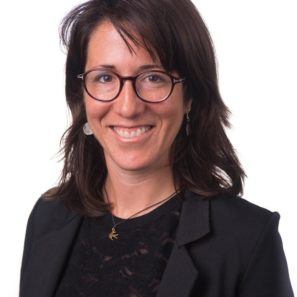
Silvia Camporesi
Senior Lecturer in Bioethics and Society, King's College London
Silvia is Senior Lecturer in Bioethics and Society at King's College London where she directs the master's programme in Bioethics and Society. She is interested in everything related to emerging biotechnologies, genetics, ethics, gender and sport. Silvia also sits on the IME Board of Trustees and the IME Research Committee.
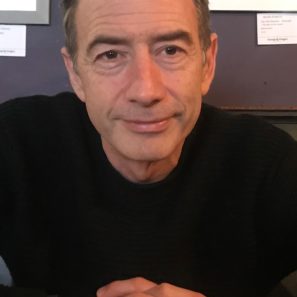
Mike Parker
Director of the Wellcome Centre for Ethics and Humanities and Director of the Ethox Centre at the University of Oxford
Michael is Professor of Bioethics at the University of Oxford and Director of the Ethox Centre and the Wellcome Centre for Ethics and Humanities. He has a longstanding interest in the ethical aspects of global health and recently chaired a two-year Nuffield Council on Bioethics Working Group on the ethics of research in the context of global health emergencies. He is a member of the UK’s Scientific Advisory Group on Emergencies (SAGE) for COVID-19 and of the WHO’s COVID-19 Ethics Working Group.
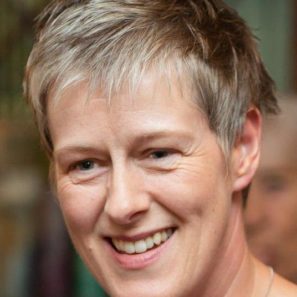
Marion Oswald @Marion_InfoLaw
Vice-Chancellor’s Senior Fellow in Law at the University of Northumbria
Marion Oswald is Vice-Chancellor’s Senior Fellow in Law at Northumbria University. Marion chairs the West Midlands Police & Crime Commissioner and West Midlands Police data ethics committee. She is an Associate Fellow of the Royal United Services Institute, an executive member of the British & Irish Law, Education & Technology Association, a member of the National Statistician's Data Ethics Advisory Committee, and the Principal Investigator on the AHRC-funded ‘Observatory for Monitoring Data-Driven Approaches to Covid-19’. She researches the interaction between law and digital technology and has a particular interest in the use of information and innovative technology by criminal justice bodies and the wider public sector. Marion regularly writes, speaks and advises on the legal and ethical implications of new technologies.
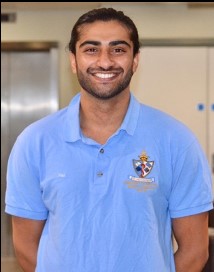
Hasnain Khan @HazKhan07
3rd year medical student
Hasnain is a 3rd year medical student at the University of Sheffield. He is the President of the Sheffield Medical Society where he is the lead voice for the 1500 Sheffield medical student.
Hasnan has co-led the MedSoc South Yorkshire COVID-19 Medical Student Volunteer Scheme where there were over 400 volunteers signed-up to help in hospitals, GPs, hospices, babysitting services for NHS staff. In addition, volunteers have been helping in the Track and Trace system and Vaccine Trials.
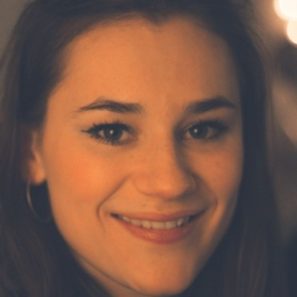
Miranda Clarke @mirandamclarke
Miranda is a final year medical student in her hometown of Newcastle. She followed a more unusual route into medicine following a gap year working and travelling, four years studying molecular genetics at Edinburgh University and employed in her post-grad year as a medical secretary before starting in 2016.
Working since the age of 16 and throughout her 9 years of university, has given her experience of waitressing, bartending, auxiliary nursing, mentoring for prospective medical students, project coordinating for an NGO in East Africa and interning at the WHO in Geneva. She is a firm believer that all of these roles have played equally significant parts in developing the skills necessary for medicine.
When the medical school abruptly halted all student placements at the start of the pandemic, Miranda started working full time as a healthcare assistant in the cancer unit within the NUTH trust. With placements now resumed, she continues to pick up ad hoc HCA shifts where possible, as well as volunteering as a First Responder with the ambulance service, attending category one and two 999 calls. Most recently, she has started working at a local Covid vaccination centre. The lessons learned from these diverse roles in the pandemic, have been immeasurable and she believes this ‘alternative curriculum’ will contribute to her graduating as a well-rounded doctor in the near future.
Mary Matthew
Dr. Mary Mathew is a Professor of Pathology & Coordinator for the Centre for Foetal and Perinatal Pathology at Kasturba Medical College, Manipal, Manipal Academy of Higher Education, Karnataka, India
She is a Postgraduate and undergraduate medical teacher and has 103 publications in national and international journals
She is the Head, Indian Program of the International Network of the UNESCO Chair in Bioethics (Haifa) & International Council Member, Department of Education, International UNESCO Chair In Bioethics (Haifa). She is the Co-Editor of the Global Bioethics Enquiry, a scholarly publication if the UNESCO Chair in Bioethics
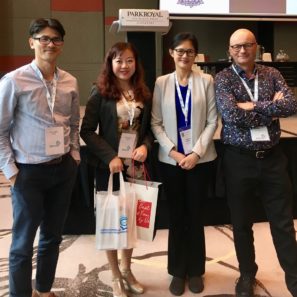
Voo Teck Chuan
Assistant Professor, Centre for Biomedical Ethics, National University of Singapore
Dr. Teck Chuan Voo is Assistant Professor at the Centre for Biomedical Ethics, Yong Loo Lin School of Medicine, National University in Singapore. His research interests cover ethical issues in healthcare and in infectious disease control and prevention. He is an editorial board member of Asian Bioethics Review; and, Philosophy and Medicine (Springer Nature) book series. Teck Chuan serves on several ethics committees in Singapore. He is an appointed member of the Ng Teng Fong General Hospital Clinical Ethics Committee; National Healthcare Group Research Ethics Committee; Ministry of Health Advisory Committee on Restricted Human Biomedical Research; and, the National Advisory Committee for Laboratory Animal Research. Internationally, he serves as a steering committee member of the Global Forum on Bioethics in Research, and a member of the Ethics Advisory Committee at the University of Nebraska Medical Center, Global Center for Health Security. He is a member of the WHO Working Group on Ethics and COVID-19.
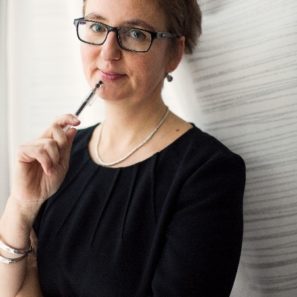
Emily Holmes
Professor of Psychology, Uppsala University
Emily Holmes, PhD, DClinPsych is a Professor in Psychology at the Department of Psychology, Uppsala University, Sweden. She is affiliated to the Karolinska Institute’s Department of Clinical Neuroscience, and is a Visiting Professor of Clinical Psychology at the Department of Psychiatry, University of Oxford, UK.
Holmes received her degree in Experimental Psychology at the University of Oxford, UK. She is also a clinician and completed a clinical psychology training doctorate at Royal Holloway University of London, and a PhD in Cognitive Neuroscience in Cambridge. She became Professor in 2010 at the University of Oxford. Holmes is an elected member of the Royal Swedish Academy of Sciences and a Fellow of the British Academy of Social Sciences. She is the recipient of several international awards, including from the American Psychological Association and the German Alexander von Humboldt Foundation. Holmes serves on the Board of Trustees of the research charity "MQ; transforming mental health”.
Holmes’ work as a clinical psychologist has fuelled her research questions. She is interested in psychological treatment innovation in mental health – both in creating new techniques and reaching more people. Under the wider umbrella of mental health science, her approach brings together psychology, neuroscience, psychiatry, maths and more. Holmes’ research has demonstrated that mental imagery has a more powerful impact on emotion than its verbal counterpart. Her group is particularly interested in understanding and reducing intrusive memories after trauma, especially after a traumatic event, whether a severe car accident, traumatic childbirth, war, or events during the COVID-19 pandemic.
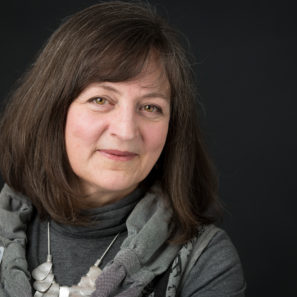
Kath Mannix
Consultant in Palliative Care, Newcastle upon Tyne Hospitals
Kathryn worked in palliative care for 30 years, seeing patients in hospitals, hospices and their own homes. She took early retirement in 2016 to work towards better public understanding of dying. She served on her hospital trust’s Clinical Ethics Advisory Group and ran an undergraduate medical ethics elective, ‘Ethics of End of Life Decision-Making’ at her local medical school.
Her book about the way people live while they are dying, With The End In Mind, was shortlisted for the Wellcome Book prize and became a Sunday Times best-seller: she is still recovering from her surprise.
Photo credit: Darren Irwin
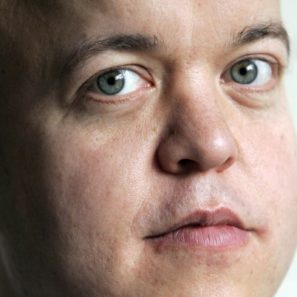
Tom Shakespeare
Professor of Disability Research, London School of Hygiene & Tropical Medicine
Tom Shakespeare is a social scientist, researching disability and bioethics. He has worked at Leeds, Newcastle, UEA and LSHTM, with a five year period at WHO. He is a past member of Nuffield Council on Bioethics. His books include Disability Rights and Wrongs, and Genetic Politics from Eugenics to Genome.
